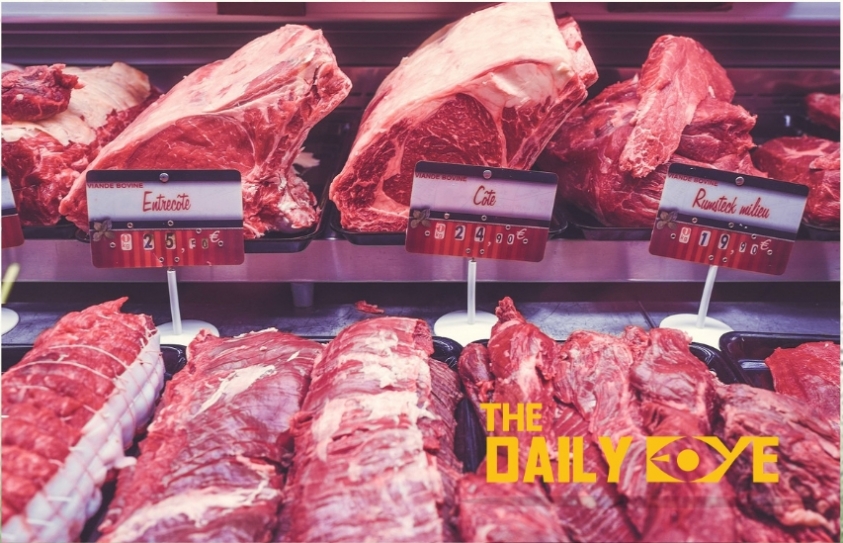
Eat Meat Less than Once a Week for the Better Future of the World
by Shruthi Venkatesh October 21 2018, 8:20 pm Estimated Reading Time: 3 mins, 0 secsA new study has warned that the massive reduction in the consumption of meat is now being highly essential for the planet’s future ability in order to support humanity. For every degree Celsius of additional temperature rise, global wheat yields are estimated to drop 6 per cent, while global rice yields are estimated to fall 10 per cent, the authors said. The Intergovernmental Panel on Climate Change (IPCC) has warned that the planet is currently “nowhere near on track” to keep the rise in temperatures below 1.5C. Under current climate commitments by world leaders, the Earth will be 3C warmer by the end of the century, the IPCC said. The researchers looked at the environmental, health, and also economic impacts of various food pathways. They modelled four different dietary scenarios for the year 2050:
.jpg)
Global changes in meat consumption (Reddit)
- A “business as usual” scenario based on projections of future diets;
- A scenario based on global dietary guidelines, which includes meeting the minimum suggested level of fruits and vegetables, and limits to the amount of red meat, sugar, and total calories;
- A vegetarian scenario, which conformed to the dietary guidelines; and
- A vegan scenario, which also conformed to the dietary guidelines.
Their conclusion was that, compared with the “business as usual” scenario, transitioning toward more plant-based diets could reduce global mortality by 6–10% and food-related greenhouse gas emissions by up to 70%. When people followed dietary guidelines and also went vegetarian, the researchers found that 7.3 million deaths could be avoided annually. And a guideline following vegan pathway could prevent 8.1 million deaths per year. In western countries, beef consumption needs to fall by 90% and be replaced by five times more beans and pulses.
Food production already causes great damage to the environment, via greenhouse gases from livestock, deforestation and water shortages from farming, and vast ocean dead zones from agricultural pollution. But without action, its impact will get far worse as the world population rises by 2.3 billion people by 2050 and global income triples, enabling more people to eat meat-rich western diets. It is pretty shocking,” said Marco Springmann at the University of Oxford, who led the research team. “We are really risking the sustainability of the whole system. If we are interested in people being able to farm and eat, then we better not do that.” But growing populations will help farming 50 per cent more food to support almost 10 billion people in the next 30 years, according to the new report published in the journal Nature. If no changes are made, the impacts of food production on the environment will rise by up to 90 per cent by 2050, the authors said, meaning the planet will no longer be a “safe operating space for humanity”.
.jpg)
The biggest thing you can do for a cause (Bustle)
As a result the researchers have called for the Earth’s population to adopt a plant-based “flexitarian” diet, in which meat is typically eaten less than once a week. “An important first step would be to align national food-based dietary guidelines with the present evidence on healthy eating and the environmental impacts of diets,” the report states. It also results in dramatic reduction in food waste, improved freshwater management, controlled fertiliser application and major investments in agricultural infrastructure and educational campaigns. The IPCC concludes that the planet has only 10 more years to prevent the catastrophic climate change. So let’s move forward and hope for the best.




-173X130.jpg)
-173X130.jpg)
-173X130.jpg)
-173X130.jpg)
-173X130.jpg)
_(1)-173X130.jpg)

-173X130.jpg)